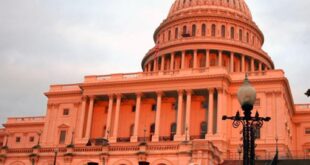 TEHRAN (FNA)- Iran’s unemployment rate dropped to 10.3 percent in the 2007-2008 Iranian year from 11.3 percent the previous year, a senior government official said on Monday.
TEHRAN (FNA)- Iran’s unemployment rate dropped to 10.3 percent in the 2007-2008 Iranian year from 11.3 percent the previous year, a senior government official said on Monday.
Minister of Labor and Social Affairs Mohammad Jahromi said improvements in the housing, industry and mining sectors helped cut the jobless rate in the Islamic Republic. The Iranian year ends on March 20.
“The unemployment rate in the country has dropped to around 10 percent … despite the increase in the country’s active population,” Jahromi said.
He said it had been as high as 14-15 percent in previous years.
Jahromi said every percentage point drop in the jobless rate would imply the creation of around 245,000 new jobs in view of an active work force of 24.5 million people.
The government of President Mahmoud Ahmadinejad came to power in 2005 pledging to share out Iran’s oil wealth more fairly.
Jahromi said the government aimed to cut the jobless rate further to around 8.4 percent by 2010, when the current five-year social and economic development plan ends.
Iran has reaped windfall gains in recent years from the high oil price on world markets and its economy grows by about six percent annually, despite US pressures and UN Security Council sanctions on Tehran over its nuclear progress.
Washington accuses Iran of using its nuclear program to produce nuclear weapons although it has never presented any corroborative evidence to substantiate its allegations. The United States has spearheaded UN sanctions against the Islamic Republic. Tehran has denied US allegations vehemently, saying it only wants to produce electricity for peaceful uses.
The US is also at loggerheads with Iran over Tehran’s independent and home-grown nuclear technology. Washington has laid much pressure on Iran to make it give up the most sensitive and advanced part of the technology, which is uranium enrichment, a process used for producing nuclear fuel for power plants.
Washington’s push for additional UN penalties contradicted the recent report by 16 US intelligence bodies that endorsed the civilian nature of Iran’s programs. Following the US National Intelligence Estimate (NIE) and similar reports by the IAEA head – one in November and the other one in February – which praised Iran’s truthfulness about key aspects of its past nuclear activities and announced settlement of outstanding issues with Tehran, any effort to impose further sanctions on Iran seemed to be completely irrational.
The February report by the UN nuclear watchdog, the International Atomic Energy Agency, praised Iran’s cooperation in clearing up all of the past questions over its nuclear program, vindicating Iran’s nuclear program and leaving no justification for any new UN sanctions.
Tehran says it never worked on atomic weapons and wants to enrich uranium merely for civilian purposes, including generation of electricity, a claim substantiated by the NIE and IAEA reports.
Iran has insisted it would continue enriching uranium because it needs to provide fuel to a 300-megawatt light-water reactor it is building in the southwestern town of Darkhoveyn as well as its first nuclear power plant in the southern port city of Bushehr.
Not only many Iranian officials, including President Mahmoud Ahmadinejad, but also many other world nations have called the UN Security Council pressure unjustified, especially in the wake of recent IAEA reports saying Iran had increased cooperation with the agency.
US President George W. Bush, who finished a tour of the Middle East last month has called on his Arab allies to unite against Iran.
But hosting officials of the regional nations dismissed Bush’s allegations, describing Tehran as a good friend of their countries.
Bush’s attempt to rally international pressure against Iran has lost steam due to the growing international vigilance, specially following the latest IAEA and US intelligence reports.
 Eurasia Press & News
Eurasia Press & News



